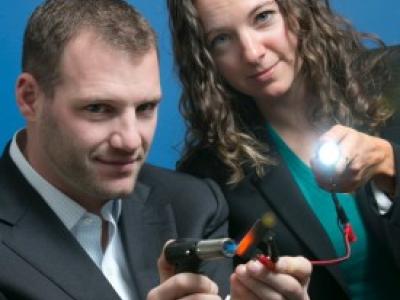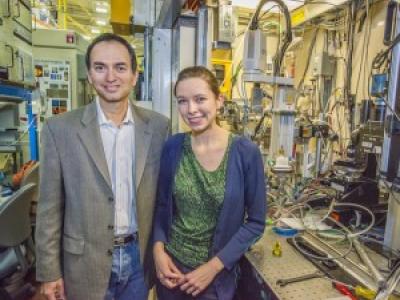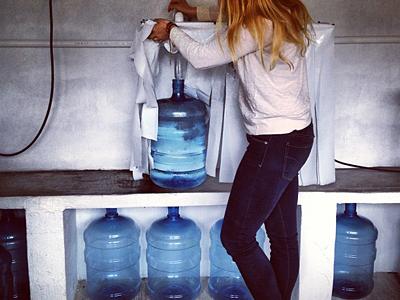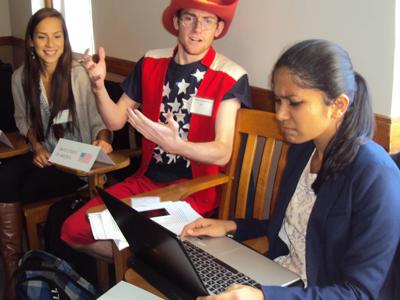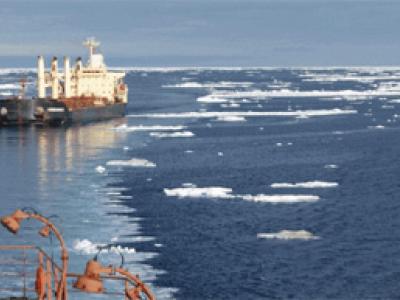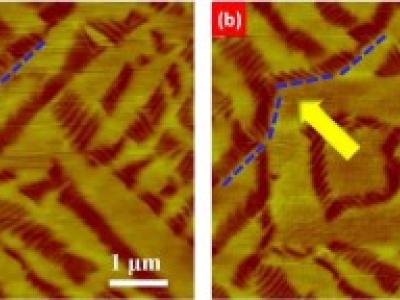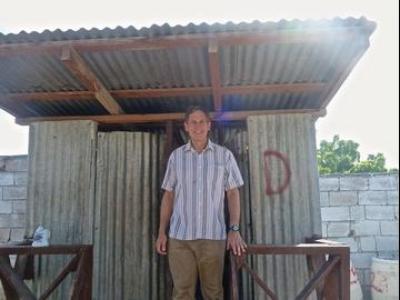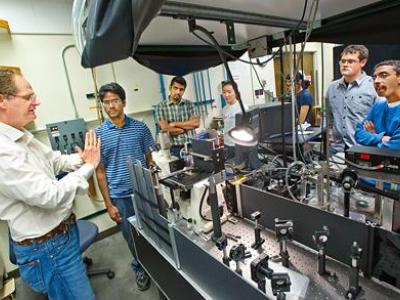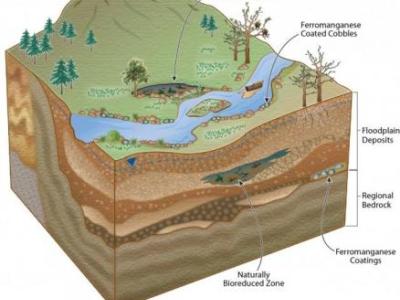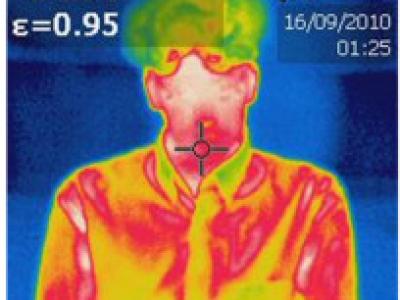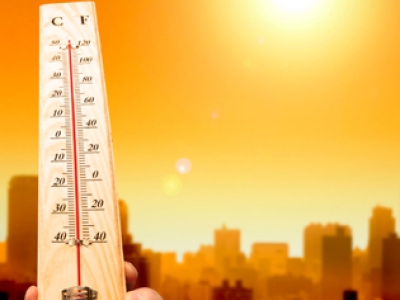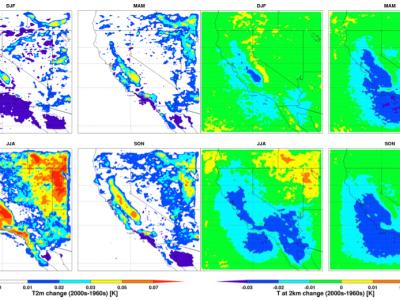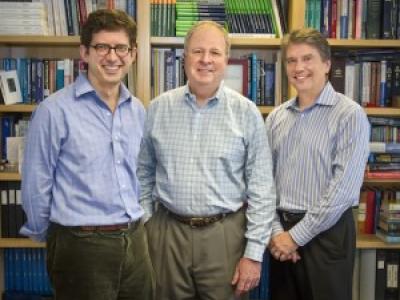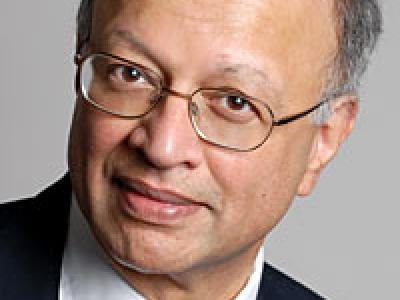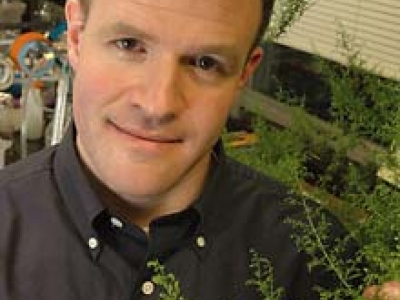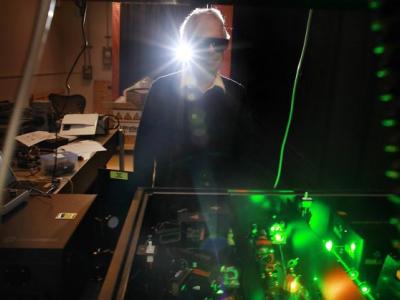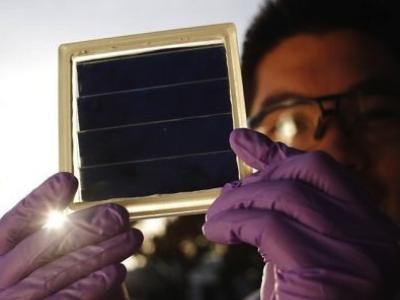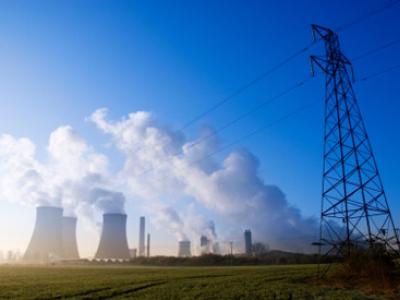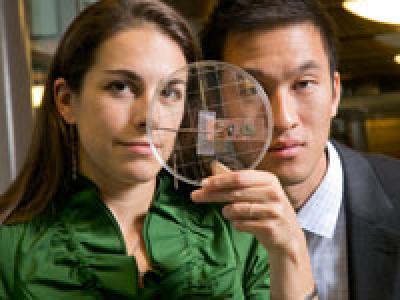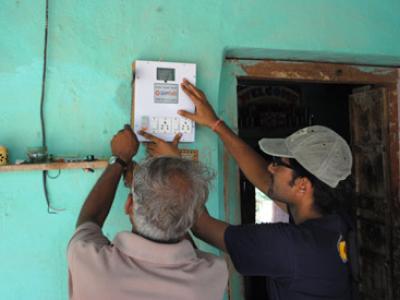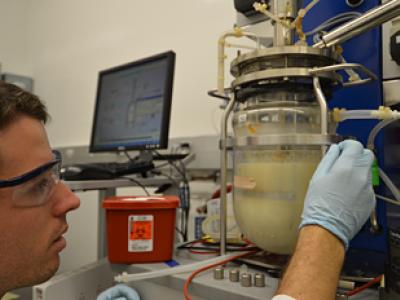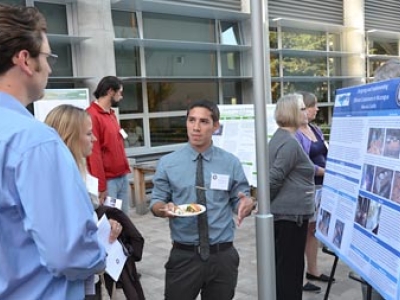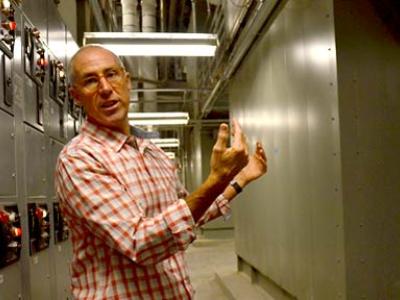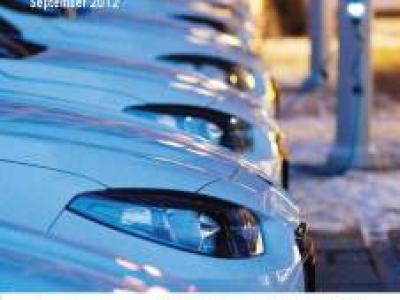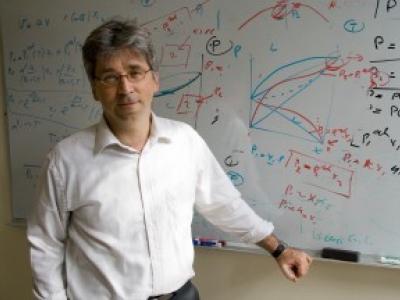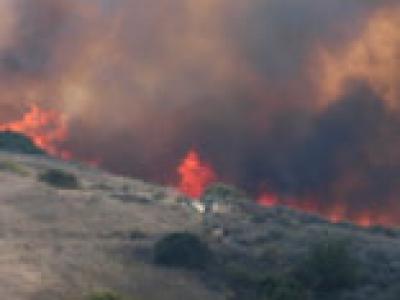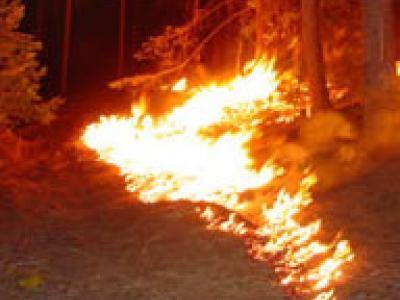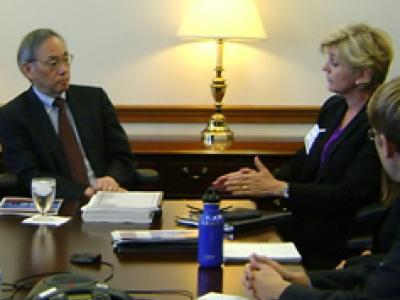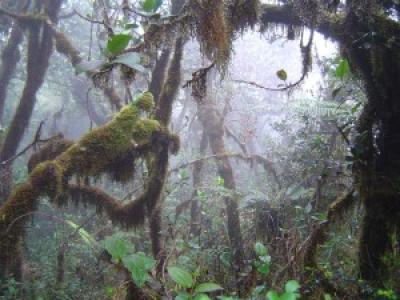Research Brief: Engineers create light-activated ‘curtains’
Forget remote-controlled curtains. A new development by researchers at the University of California, Berkeley, could lead to curtains and other materials that move in response to light, no batteries needed.
Suburban sprawl cancels carbon-footprint savings of dense urban cores
According to a new study by UC Berkeley researchers, population-dense cities contribute less greenhouse-gas emissions per person than other areas of the country, but these cities’ extensive suburbs essentially wipe out the climate benefits.
Berkeley Lab Researchers Find Dendrites Start Below the Surface
The lithium-ion batteries that power our laptops, smartphones and electric vehicles could have significantly higher energy density if their graphite anodes were to be replaced by lithium metal anodes
Senior with a passion for water rights wins prestigious Marshall scholarship
Rebecca Peters, a senior whose deep interest in water rights has taken her to Latin America’s rural areas and to the center of international policymaking, has won one of the nation’s top honors for undergraduates, a Marshall Scholarship.
Classroom Treaty Talks Speak Volumes on Climate Politics
Report warns of climate change ‘tipping points’ within our lifetime
UC Berkeley’s Tony Barnosky joined climate scientists this morning at a press conference at the National Academy of Sciences in Washington, D.C., to summarize a new report issued today focusing on the short-term effects of climate change and the need to monitor them closely.
Remembrances of Things Past: Berkeley Lab Researchers Discover Nanoscale Shape-Memory Oxide
Listen up nickel-titanium and all you other shape-memory alloys, there’s a new kid on the block that just claimed the championship for elasticity and is primed to take over the shape memory apps market at the nanoscale.
Students tackle climate change in neighboring Richmond
Residents of Richmond, Calif., on the northeastern edge of San Francisco Bay, expect climate change to present their city with major challenges –- from rising sea levels to higher temperatures, flood risks and increased energy and water consumption –- in coming years. For help meeting these challenges, the city is turning to planning students at UC Berkeley.
Berkeley Lab Scientist Invents Portable DNA Extraction Kit, Helps Haiti
UC Berkeley, Berkeley Lab announce Kavli Energy NanoScience Institute
The Kavli Foundation has endowed a new institute at the University of California, Berkeley, and the Lawrence Berkeley National Laboratory (Berkeley Lab) to explore the basic science of how to capture and channel energy on the molecular or nanoscale and use this information to discover new ways of generating energy for human use.
New Berkeley Lab Subsurface SFA 2.0 Project Explores Uncharted Environmental Frontier of Subsurface Ecogenomics
The key to a better understanding of the carbon cycle, the flow of contaminants, even the sustainable growth of biofuel crops, starts with the ground beneath your feet. More specifically, it starts with the genomes of the microbes that live in the water and sediment beneath your feet.
Newly released climate change report reinforces need for action
The release today (Friday, Sept. 27) of Assessment Report 5, a new report by the Intergovernmental Panel on Climate Change (IPCC), bolsters the conclusions of its 2007 report that humans are responsible for global warming, and it highlights the need for immediate action to reduce carbon emissions.
Office too hot or cold? Researchers aim for comfort, energy efficiency
Researchers at the University of California, Berkeley, are working to take research innovations from their labs into the real world to cut commercial building energy consumption by close to a third, and give office workers an unprecedented sense of control over their thermal environments.
Warmer climate strongly affects human conflict and violence worldwide, says study
Shifts in climate are strongly linked to human violence around the world, and according to a new study by researchers at the University of California, Berkeley and Princeton University, even relatively minor departures from normal temperatures or rainfall can substantially increase the risk of conflict.
College launches new energy engineering major
The College of Engineering has launched a new major—driven largely by undergraduate interest—that focuses in a comprehensive way on the generation, transmission and storage of energy, with additional courses on energy policy.
Research Brief: Technology could bring high-end solar to the masses
Engineers at the University of California, Berkeley, have developed an inexpensive new way to grow thin films of a material prized in the semiconductor and photovoltaic industries, an achievement that could bring high-end solar cells within reach of consumer pocketbooks.
California’s efforts to clean up diesel engines have helped reduce impact of climate change on state, study finds
Berkeley Lab partners in study showing clean diesel programs slashed black carbon, a powerful short-term contributor to global warming
First Patent Granted for Research at Energy Biosciences Institute
Research on improved sugar transport for biofuel production has been recognized with the first patent to be granted to the Energy Biosciences Institute since the collaboration’s establishment in 2007.
Sweet Success: Berkeley Lab Researchers Find Way to Catalyze More Sugars from Biomass
Researchers with the Lawrence Berkeley National Laboratory (Berkeley Lab) through support from the Energy Biosciences Institute (EBI) have literally shed new light on cellulase catalysis.
Rising temperature difference between hemispheres could dramatically shift rainfall patterns in tropics
One often ignored consequence of global climate change is that the Northern Hemisphere is becoming warmer than the Southern Hemisphere, which could significantly alter tropical precipitation patterns, according to a new study by climatologists from the University of California, Berkeley, and the University of Washington, Seattle.
Two UC Berkeley faculty members named to NAE
Two faculty members at the University of California, Berkeley, have been named to the National Academy of Engineering (NAE). Election to the NAE is considered one of the most prestigious professional distinctions accorded to an American engineer.
Berkeley Lab Study Finds Big Energy Savings in The New York Times Building
Designing a building holistically, and making sure that its components and systems work together according to design intent, can pay big dividends in energy savings and occupant satisfaction, according to a study of The New York Times Building by the Lawrence Berkeley National Laboratory (Berkeley Lab).
Jay Keasling: Using microbes to create the next generation of fuel
Jay Keasling, UC Berkeley chemical engineer and leader in the field of synthetic biology, is featured on CNN’s “The Next List” for his work on using microbes to create the next generation of fuel.
Scientist sees the light on solar energy
Heinz Frei, the acting director of the Joint Center for Artificial Photosynthesis at the Lawrence Berkeley National Laboratory was recently featured in the San Francisco Chronicle. JCAP’s efforts focus on generating fuels from sunlight.
Turning over new leaf in climate change
The San Francisco Chronicle recently reported on the Lawrence Berkeley National Laboratory’s research on artificial photosynthesis.
UC Berkeley awarded $4 million ARPA-E grant for smart grid research
The Department of Energy has awarded $4 million over three years to researchers at the University of California, Berkeley, to develop new ways to monitor the stability of electric power grids.
Cleantech to Market Bridges Gap from Lab to Launch
Mechanical engineer Lindsay Miller, PhD 12, knew there was a market for her doctoral thesis project—a device the size of a stick of gum that harvests energy from machinery vibrations, generating enough electricity to run wireless sensors without ever having to change a battery.
USAID invests up to $20 million in UC Berkeley’s global development initiatives
UC Berkeley’s leadership in developing innovative and practical solutions for global problems is being recognized in a $20 million cooperative agreement with the U.S. Agency for International Development (USAID).
Sweet diesel! Discovery resurrects process to convert sugar directly to diesel
A long-abandoned fermentation process once used to turn starch into explosives can be used to produce renewable diesel fuel to replace the fossil fuels now used in transportation, UC Berkeley scientists have discovered.
Air pollution study clears the air on diesel versus gas emissions
UC Berkeley researchers released a new study that says diesel exhaust contributes 15 times more than gas emissions per liter of fuel burned.
The Best of Both Catalytic Worlds
Catalysts are substances that speed up the rates of chemical reactions without themselves being chemically changed. Industrial catalysts come in two main types – heterogeneous, in which the catalyst is in a different phase from the reactants; and homogeneous, in which catalyst and the reactants are in the same phase.
Cal Energy Corps interns field-test smart solutions
Recently returned from their summer sojourns, 32 UC Berkeley undergraduates shared experiences interning on myriad sustainability projects around the world during the second annual Cal Energy Corps symposium at the David Brower Center Thursday.
New ‘energy incentive’ links kilowatt usage with the bottom line
New Report on Electric Vehicle Policies
The environmental law centers at UCLA and UC Berkeley Schools of Law today released a new report on industry actions and federal, state, and local policies needed to stimulate long-term, mass adoption of electric vehicles.
BCGC wins $3.4 million NSF training grant: Grad students encouraged to apply
The Berkeley Center for Green Chemistry (BCGC) has been awarded a $3.4 million training grant by the National Science Foundation. The grant will train five to six Ph.D. students annually for five years in the principles of green chemistry and the design of clean energy technologies.
Speeding the Search for Better Carbon Capture
A computer model that can identify the best molecular candidates for removing carbon dioxide, molecular nitrogen and other greenhouse gases from power plant flues has been developed by researchers with the U.S. Department of Energy (DOE)’s Lawrence Berkeley National Laboratory (Berkeley Lab), the University of California (UC) Berkeley and the University of Minnesota.
Future of California high-speed rail looks green
A new analysis gives Californians good reason to be optimistic about the green credentials of the state’s proposed high-speed rail project, due to begin construction in 2013 thanks to funding recently approved by state legislators. Arpad Horvath at the University of California, Berkeley, and Mikhail Chester at Arizona State University compared the future sustainability of California high-speed rail with that of competing modes of transportation, namely automobile and air travel.
U.S. could quadruple biofuel use in 25 years, experts say
UC Berkeley Chemists Installing Carbon Dioxide Sensors in Oakland
Using inexpensive detectors that can fit inside a shoebox, UC Berkeley chemists are installing carbon dioxide and other air pollution sensors in 40 sites around Oakland to explore how detailed, neighborhood-by-neighborhood information can help communities monitor greenhouse gas and other harmful emissions.
Two UC Berkeley grads launch printable battery startup
With moral and monetary support from UC Berkeley and UC’s Office of the President, two UC grads – Christine Ho and Brooks Kincaid – have formed a company to create ‘printable’ batteries that are efficient, environmentally friendly and could be made as small as a postage stamp. The start-up is a tribute to the campus’s entrepreneurial environment and its innovative students.
Analysis of global fire risk shows big, fast changes ahead
Climate change is widely expected to disrupt future fire patterns around the world — with some regions, such as the western U.S., seeing more frequent fires within the next 30 years, according to a new analysis led by UC Berkeley researchers in collaboration with an international team of scientists. The study used 16 different climate-change models to produce one of the most comprehensive projections to date of how climate change might affect global fire patterns.
Let it burn: Prescribed fires pose little danger to forest ecology, study says
UC Berkeley-led research is giving the green light to fighting fire with fire. An analysis of controlled burns and mechanical thinning nationwide did not find substantial ecological harm from fuel-reduction treatments used to reduce the risk of catastrophic wildfires. And with a rise in wildfires predicted in many parts of the country, researchers say more treatments are needed to manage this risk.
UC Berkeley students present recommendations for clean energy policy in Washington, DC
A group of students from UC Berkeley met with top energy policy makers in Washington DC to present their recommendations on developing a national clean energy plan. These recommendations were based on an extensive report that represented the culmination of a semester's worth of work in the class “Renewable Energy and Other Cleaner Fuels: Energy Policy to Save the Planet, the Country, and the Economy” co-taught by Jannifer Granholm and Steve Weissman in spring 2012.
Environmental ed project teams Berkeley with global practitioners
Hazy days: Berkeley Lab tackles pollution in Mongolia
Scientists at UC Berkeley and LBNL convert carbon in tobacco leaves to biofuel
Electricity-generating viruses could lead to pocket power plants
Scientists at UC Berkeley and Berkeley Lab have harnessed the electricity-generating capabilities of viruses, a development that could lead to pocket power plants for mobile devices.
Microbe that can handle ionic liquids
Beyond the high-speed hard drive: topological insulators open a path to room-temperature spintronics
Berkeley Lab researchers and their colleagues demonstrate unique new materials for innovative electronic and magnetic applications

